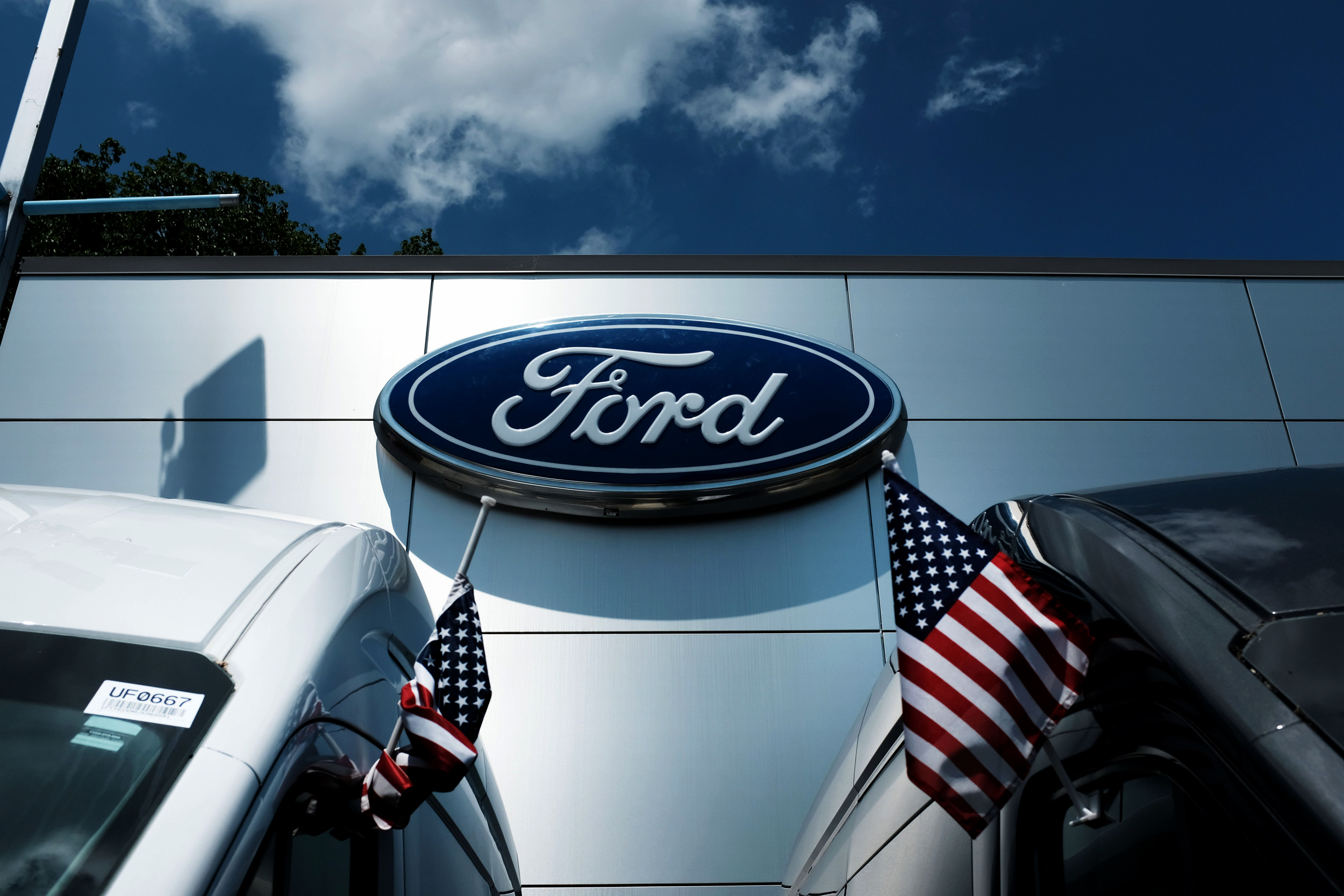
- Stocks
Ford slows electric vehicle plans
Do you want to know how to make money from this?
Register for free and get expert advice, access to a training course and webinars.
Key points:
- The company is reviewing its projects as the electric vehicle market is not growing as quickly as expected.
- Rising raw material prices and declining margins are complicating the market situation.
- In parallel with the development of electric vehicles, Ford is actively promoting hybrid vehicles as an intermediate solution.
American automaker Ford Motor announced Wednesday that it is revising its electric vehicle strategy, abandoning plans to build a three-row electric SUV and delaying the launch of an electric version of the F-150 pickup truck. The decisions are part of a broader effort to cut costs and adapt to changing market conditions.
Why is Ford slowing down its electric vehicle strategy?
With demand for electric vehicles slowing, a number of major automakers, including Ford and General Motors, have decided to adjust their plans for the release of new electric models. The companies are trying to optimize production costs by postponing or even canceling projects that aren’t in the expected demand among consumers.
In parallel, Ford announced the expansion of its electric model range with new pickups and mid-size vans. This decision demonstrates the company’s desire to strengthen its position in traditionally strong market segments – pickups and commercial vehicles.
Ford CFO John Lawler stressed that the company is forced to adjust its strategy due to changes in the market, such as rising raw material prices and declining margins. The goal of these changes is to achieve positive operating profit within the first year after the launch of new models.
As an alternative to large-scale investments in electric vehicles, Ford, like its rival Toyota, is betting on hybrid cars that combine electric and gasoline engines. Hybrids continue to grow in popularity among consumers seeking to reduce fuel costs, but aren’t ready to switch completely to electric vehicles.
Current plans of the car manufacturer
Jim Farley, Ford’s CEO, has singled out lower production costs for electric vehicles as a key factor holding back sales growth for these models. The company, which expects to post significant losses from its electric segment this year, is focusing on cutting costs to ensure its long-term financial sustainability.
Farley expressed confidence in the California-based development team’s ability to create an affordable electric vehicle platform that will underpin future Ford models. The first vehicle on this platform will be a midsize electric pickup truck scheduled for release in 2027.
To optimize costs, Ford is forced to write down assets related to a previously planned three-row electric SUV, which will entail additional financial charges. The company is also adjusting its investments in electrification, reducing the share of capital expenditures allocated to pure electric vehicles to 30%.
Instead of electric three-row SUVs, Ford will focus on hybrid models in this segment, offering customers cars with a long range for long trips.
The company plans to provide more details on its electrification strategy, technology developments and financial performance in the first half of 2025.
Do you want to know
How to make money from the news
Register for free and get:
- Expert consultation;
- Access to the training course;
- Opportunity to participate in webinars

